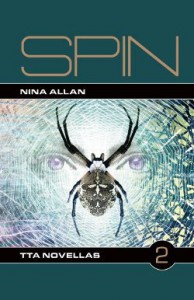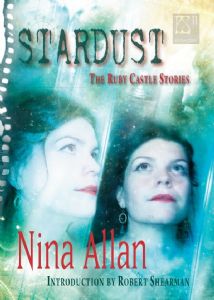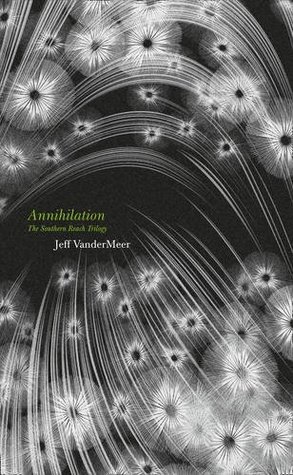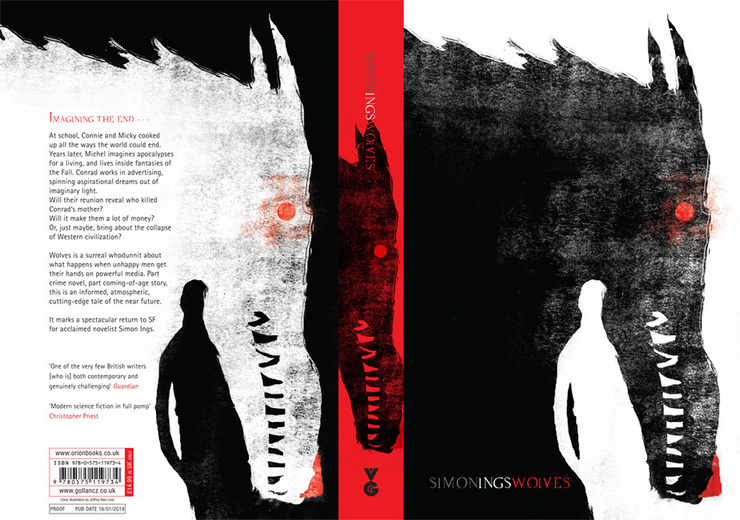“Meaning is a bit of a bore, but storytelling is alive. The novel form can be difficult, cumbrously serious; storytelling is all pleasure, fantastical in its fertility, its ceaseless inventiveness. Easy to consume, too, because it excites hunger while simultaneously satisfying it: we continuously want more.The novel now aspires to the regality of the boxed DVD set: the throne is a game of them. And the purer the storytelling the better—where purity is the embrace of sheer occurrence, unburdened by deeper meaning. Publishers, readers, booksellers, even critics, acclaim the novel that one can deliciously sink into, forget oneself in, the novel that returns us to the innocence of childhood or the dream of the cartoon, the novel of a thousand confections and no unwanted significance. What becomes harder to find, and lonelier to defend, is the idea of the novel as—in Ford Madox Ford’s words—a “medium of profoundly serious investigation into the human case.”
So argues critic James Wood, in his review of David Mitchell’s The Bone Clocks for The New Yorker. I must begin by saying that I have not yet read The Bone Clocks, though my copy is on its way to me as I write, but I felt I had to say something about Wood’s piece, not so much because I feel he completely misunderstands what Mitchell is about (though this is true, and reading his review put me in mind of those Punt and Dennis sketches about the embarrassing dad) but because it reveals so much about the way he, together with most of the über-critics of today (John Mullan comes to mind) so regularly misunderstand and disparage not just science fiction and fantasy but any narrative mode that does not conform to their preconceived notions of how fiction has to behave in order to be considered serious. In this article alone, Wood points to ‘weightless fantasy’ and the ‘demented intricacies of science fiction’ as salient devaluing characteristics of Mitchell’s novel, and by extension all fiction by contemporary writers who employ speculative elements or alternative modes of narration as an integral part of their work:
“As soon as the fantasy theme announces itself…the reader is put on alert, and is waiting for the next visitation, which arrives punctually. Gradually, the reader begins to understand that the realism—the human activity—is relatively unimportant.”
I felt embarrassed to read this, and sad, and angry. Because even if you’d never come across any of Wood’s essays before, you’d know just from these few lines that he’s one of those critics who will happily ‘allow’ for the validity of speculative materials where the authors in question are safely dead, buried, and readily assimilable into the Oxbridge canon – Beowulf, Homer, Shelley, Bronte, Le Fanu, Zamyatin, Huxley, Orwell, Wyndham, Golding, Ballard and even up to and including the happily-still-living Susan Cooper – and yet who seem not just to misinterpret but actually to fear – the barbarians are at the gate! – contemporary innovations and experiments in genre, form and diversity among today’s writers. The only valid use of the fantastic in literature today, Wood argues, is in fiction aimed at children. (You might remember that Kate Saunders made a similar pronouncement in her patronising and sexist profile of Eleanor Catton for The Times last year.)
Wood cites Ford Madox Ford as the supreme ‘investigator of the human case’, and well he might. Ford’s The Good Soldier is one of the novels that gets cited everywhere, both in newspaper features as one of those ‘100 books to read before you die’, and by other writers as the supreme example of ‘the perfect novel’, the kind of book you find yourself coming back to again and again. I wouldn’t argue with any of that. I first read The Good Soldier about three years ago – I missed it when I was at uni, and then found myself forever putting it off, plagued by that resistance one instinctively feels towards books that people are always telling you you ‘simply must’ read. When I finally got down to it I was hooked more or less immediately. The story on the surface is a predictable bit of soap opera – a tale of wife-swapping and moral degeneracy involving upper class types perambulating around Europe for the sake of their health – but Ford’s use of techniques that were then very new (a discursive, time-jumping narrative, a supremely unreliable narrator), the subversion of the novel’s restrained, nostalgic tone by the passion and violence of the events described, together with the perfectly crafted elegance of the writing itself make this novel something very special in terms of what it is (a modern novel), when it was written (on the eve of WW1) and what it represents (the shattering of an era and a worldview). Please note also, James Wood, that one of the chief pleasures of The Good Soldier is its almost addictive readability. This was one of those rare novels (when you’re a writer they become increasingly rare) that I lost myself in to such an extent that I forgot all about the writer, and what he was doing, and how well he’d succeeded – I just wanted to know what happened, dammit.
So I’m not coming here to dis Ford, or his transatlantic literary inheritors Franzen and DeLillo and Eugenides and Yates. (There is no writer on this side of the Atlantic currently working who is as incisive and insightful in this particular sphere – Barnes and McEwan, for example, are parochial doodlers by comparison with the writers above, a fact that Wood as well as Ford might find ironic.) The novel, so long not-dead, is so perennial and so various and so inclusive that there will always be room and reason for novels like The Good Soldier and The Corrections. But to imply, as Wood does, firstly that good storytelling must come at the expense of ‘meaning’, and secondly that the very diversity of the novel today has detrimentally affected the pursuit of ‘the profoundly serious’, is to my mind both incorrect and dangerously limiting.
At one point in his review, Wood laments that David Mitchell’s previous novel The Thousand Autumns of Jacob de Zoet ‘begins as a formidably achieved historical novel but gradually turns into something out of Japanese anime’. Once again, a cursory disparagement of a whole mode of storytelling (and I would be willing to bet that Wood knows even less about Japanese anime than he knows about science fiction) and a complete absence of interest in what Mitchell might actually be doing or saying with his employment of this kind of imagery and interweaving of styles. If Mitchell is capable of such ‘formidable achievement’ by Wood’s mark, surely his decision to subvert the recognisably realistic aspects of his narrative by the playing them off against more fantastical conceits comes down to more than literary naivete or unhappy accident? So much for serious investigation.
What is it about science fiction that so terrifies critics like Wood? The key, I think, lies in what he says here:
“The Bone Clocks begins in 1984, in pleasingly familiar territory. We are in the provincial England of Black Swan Green—a world of possessive lower-middle-class parents, bad English cars, inventive slang, and terrific music.”
Wood is comfortable with these things, because he knows what’s going on. It is only when things ‘quickly get peculiar’ that he feels less certain of what is going on, and therefore less comfortable. Note the coupling of the adverb ‘pleasingly’ with the adjective ‘familiar’. For critics like Wood, it is always going to be that familiarity – that sense of being on home ground, and therefore at an advantage – that is pleasing, just as the sense of being plunged into the ‘peculiar’ – i.e any milieu that is not immediately assimilable by them – is disconcerting and therefore ‘weightless’.
It would appear that science fiction and the literature of the fantastic can leave some critics feeling as if they have been divested of their intellectual armoury. Unused to the terrain, they flounder – does she really mean this literally, or is it a metaphor??? Unused to being inexpert, they reject. For critics such as these, it is safer to reject the unaccustomed as not-serious, because they know serious, and this isn’t it. It is interesting to note that Wood is perfectly comfortable with the idea of creative speculation when it fits his own remit – he happily asserts, for example, that the fact that ‘[the protagonists’] freedom is itself fictional is an unimportant paradox, just part of the everyday novelistic contract’ – yet is contemptuously dismissive of ‘unreality’ when it is employed in the service of ideas he has not learned the vocabulary for, or by a writer he does not deem worthy of serious consideration.
Novel means new, and luckily for all those who love books, the novel today is still as new as the day it was born. Novelists who interest themselves in human affairs should and will continually seek out new ways of exploring, expressing, and yes, seriously investigating the diverse experiences of reality that exist. Is David Mitchell’s investigation in The Bone Clocks less worthy of attention than Martin Amis’s in his also-recently-published novel The Zone of Interest, simply because Mitchell’s iconography of evil is an imaginative construct, whereas in his use of the persons and symbols of Nazi Germany Amis has chosen to co-opt an iconography of evil that is already familiar to us? Amis takes less risk, certainly. (Whether his motives are more questionable is a matter that lies beyond the scope of this essay.) Similarly with the DVD box sets, graphic novels and RPGs that Wood so disparages. I cannot help feeling that Wood is rejecting these modes of discourse not because he has tried them and found them wanting, but because he believes they threaten the intrinsic seriousness of what is aesthetically worthy and allowable in his version of reality. Because they are unfamiliar, in other words. For Wood, aesthetic worth is mostly about shoring up a set of values he takes to be objective. In fact they are learned, a set of received opinions. Some of them may be good opinions, but if Wood is afraid to test them against other modes of expression, how will he know?
Almost exactly a century after the publication of The Good Soldier, we are living in a world Ford would barely recognise, a world both smaller and larger, more monolithic and more diverse. The anxieties we face are practical as well as internal. For writers wishing to interrogate those anxieties, it is vital and natural that we diversify our sources, our inspirations, and our ways of seeing. We may draw inspiration from Ford, not just because he wrote a great novel but because he was doing in his time what we should be doing in ours: pushing the boundaries. But as a profoundly serious investigation into the human case, it should be more or less impossible for a writer today to write a novel that examines the world in quite the same way that The Good Soldier does. Not, whatever Wood might think, because Ford’s level of technique is sadly lost to us barbarians, but because the world as Ford experienced it and thought about it is off-kilter in so many ways, wrong-headed, misinformed, gone. The kind of critic that bemoans the passing of such an aesthetic is all too often of the same stripe as those who used annually to complain about the increasing proliferation of novels by ‘un-English’ writers on the Booker shortlist.
The job of the writer should surely be more than the simple transcribing of what is already known. What we know is our raw material, to be warped, transported, alchemically altered into what we imagine. It is in the nature of science fiction above all to recognise that what we take for normality today could differ radically from might happen tomorrow, that even as we fumble towards it, reality eludes us. It is the most supple and adaptable of literatures and, it could be argued, there is none more perfectly suited to the serious investigation of the spaces – mental and physical, personal and public, inner and outer – we find ourselves inhabiting today.
In any case, there are more places to contemplate the world from than through a Harvard window.




